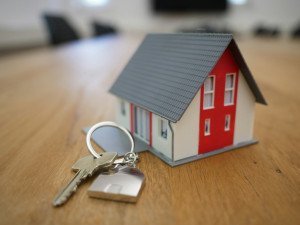What is commercial property?
Commercial property refers to real estate that is being used for commercial purposes. Sometimes commercial property is used as an umbrella term which includes commercial properties, retail properties, and industrial properties.
Examples of commercial properties might include office space, warehouses, factories, gyms, retail shops, and many other types of business premises.
What is a commercial property lawyer?
A commercial property lawyer is a lawyer with expertise in dealing with commercial property transactions. This typically involves tasks such as commercial conveyancing and commercial leasing.
Commercial property conveyancing
Solicitors for commercial property will oversee the conveyancing process for a commercial property from start to finish. This would include reviewing or preparing contracts, providing you with advice, negotiating amendments to the contract with the other parties involved, arranging execution of contracts, and overseeing settlement.
Commercial properties are often sold with a lease in place, which means that a commercial property lawyer will also need experience in commercial property leasing and how the terms of the lease may affect the risk profile or sale value of the property.
A commercial property lease lawyer can help you to understand any rights or obligations contained in the lease that might affect your ownership of the property and by extension, the value of the property. This can include things such as:
The length of the lease, including any options to renew, the rent and outgoings applicable, and how they are to be reviewed throughout the duration of the lease.
Any make-good obligations at the end of the lease. Does the tenant have to restore the property to a particular condition at the end of the lease? Do they need to remove their fixtures and fittings?
What the tenant must provide the landlord as security for its obligations to the landlord under the lease (for example a security deposit or bank guarantee)
The insurance requirements and what obligations might arise if the property is damaged by a party to the lease, a third party (such as in case of a fire), or an act of god (such as a storm).
What happens if a party breaches the lease.
Whether there are any other obligations on either party to the lease (for example, a party may have obligations to repair and maintain the air-conditioning in the property and to have it regularly serviced).
Whether there are illegal works or whether the property is being used for an unapproved purpose.
How to buy commercial property in Australia
Commercial property can be purchased just like residential property – by private treaty or by auction. It is also common to see commercial property being offered for sale by expression of interest, where parties have the opportunity to put forward a non-binding offer with their proposed terms.
Due to the complex nature of commercial property, contracts will often be made subject to finance or due diligence, to allow purchasers the opportunity to conduct due diligence and ensure that they can obtain finance approval for the purchase before being locked into the deal.
Commercial Property due diligence
When conducting due diligence on a commercial property purchase, a purchaser may consider getting advice from:
Property valuers or licensed real estate agents – to understand market value of the property as well as market rent.
Building and pest inspectors – to understand the quality of the structures on the land, and to help anticipate any future maintenance needs.
Strata inspectors – if the property is part of a strata scheme, there may be additional obligations or restrictions imposed by the strata by-laws.
Planning and development consultants – to understand how the property can be used, whether the current use and structures are approved, and to understand any future development potential.
How to calculate commercial property value
There are several different ways of calculating the value of a commercial property. One of the most common ways is to use a ‘cap rate’. This is where investors determine the price by dividing the net rental yield of the property by their required rate of return.
Valuing commercial property can be complex as there can be numerous factors to consider including the rental yield of the property, the location and condition of the property, the permitted use of the property, its future development potential, and the terms of any lease, including its length and any rights or obligations that either party might have.
If you’re unsure about the value of a commercial property, it is important to get professional advice from a valuer or a licensed real estate agent that specialises in commercial property.
How long does it take to buy a commercial property?
Buying a commercial property can be fast or slow depending on the needs of the parties to the transaction. Often the longest part in the process is actually finding a deal that meets your criteria.
Once a deal has been negotiated and contracts have been entered into, it is common to see contracts that run for 42 days (6 weeks) in New South Wales. Despite this, if there are contractual conditions such as due diligence periods or subject to finance clauses, the settlement period could be extended to allow further time for the parties to satisfy themselves as to those conditions.
What is commercial property management?
Once a commercial property has been purchased, if it not being used by the purchaser for their own business, it will typically be leased to a third party. Just like with any tenancy, the tenant and landlord will typically interact on a regular basis in relation to the following items:
Invoicing and payment of rent.
Payment of outgoings.
Dealing with any breaches, such as rental arrears.
Checking that insurances and bond obligations are kept up to date.
Getting approvals for any fit-out or alterations to the property.
Ongoing maintenance and repair of the property.
Routine inspections to ensure that the premises are being used and maintained in accordance with the lease.
Some commercial landlords will manage their commercial property themselves, however as it is a time-consuming process, many will also elect to delegate the responsibility to a commercial property manager.
Speak to an experienced commercial property lawyer
The role of a commercial property conveyancing lawyer goes far beyond simply transferring ownership of the property from one person to another. The role involves understanding and advising on the commercial risks associated with buying and owning the commercial property, including any risks associated with the lease which may involve years of future obligations for both the landlord and the tenant.
At Thornton + King our award-winning team of commercial property lawyers have decades of experience dealing with commercial property and commercial lease transactions.
We’d love to hear from you. Give us a call or submit an enquiry now.












